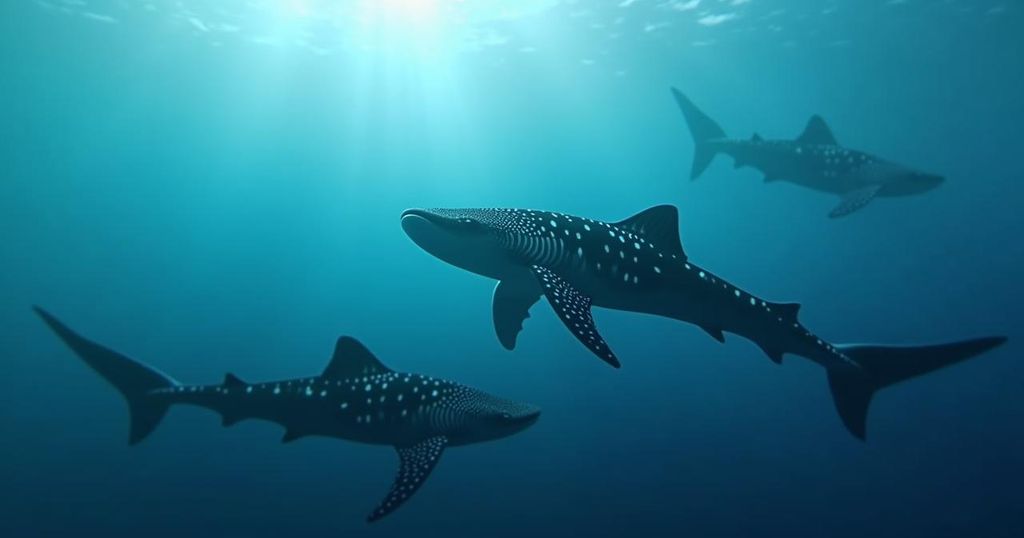Global warming is increasing the risk of ship strikes on endangered whale sharks as changing ocean temperatures drive them into shipping lanes. Research indicates a potential 15,000-fold increase in co-occurrence with shipping traffic by the century’s end without mitigation efforts. The study suggests significant habitat loss in Asia but potential recovery in Europe under sustainable practices.
Recent research conducted by the University of Southampton and the Marine Biological Association indicates that global warming poses an increased risk to the endangered whale shark population, primarily due to heightened encounters with shipping vessels. As the largest known fish species, reaching lengths of over 60 feet, whale sharks are particularly susceptible to the dangers of ship strikes, which often result in fatal injuries. The study forecasts a dramatic rise in the overlap between whale sharks and large merchant ships, projecting that by the end of the century, this co-occurrence could surge up to 15,000 times compared to current levels. Lead author Dr. Freya Womersley emphasized that these changes in the habitat of whale sharks would be most pronounced under high emission scenarios, suggesting a substantial loss of core habitats alongside increased shipping traffic as ocean temperatures rise and environmental conditions evolve. Employing satellite-tracking data and climatic models, researchers anticipate a loss of over 50% in essential habitats in certain national waters, predominantly in Asia, without any intervention to curb emissions. Conversely, under a sustainable development framework that aims to limit global warming to 2°C, some regions, particularly in Europe, could experience a recovery in core habitats. The study also analyzed shipping traffic density in relation to whale shark distribution, finding that newly suitable habitats in areas such as the North Pacific Ocean and Eastern China Seas would coincide with key shipping lanes, thereby elevating the risk of collision. Some regions, including sections of the Gulf of Mexico, could witness a reduction in potential vehicle interactions due to shifts towards coastal habitats.
The impact of climate change on marine ecosystems has been the subject of increasingly urgent research, particularly concerning species already classified as endangered. Whale sharks, one of the largest fish species globally, face significant threats from various human activities, including commercial shipping. This study highlights the interplay between climate-induced habitat changes and the rising hazards posed by maritime traffic, suggesting that warming ocean temperatures compel these sharks to navigate through more dangerous shipping zones. The findings underscore the necessity for proactive measures in both climate policy and marine species conservation.
In conclusion, the research highlights a concerning correlation between climate change and the escalating risk of whale shark ship strikes due to shifting habitats caused by rising ocean temperatures. With projections indicating a significant increase in encounters with shipping vessels, it becomes imperative for stakeholders to address the dual challenges of climate mitigation and wildlife conservation. By adopting sustainable development practices, there is potential to safeguard critical habitats for whale sharks and reduce their vulnerability to ship collisions.
Original Source: www.thetimes-tribune.com






